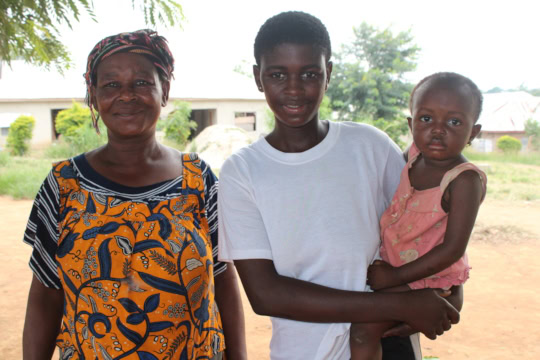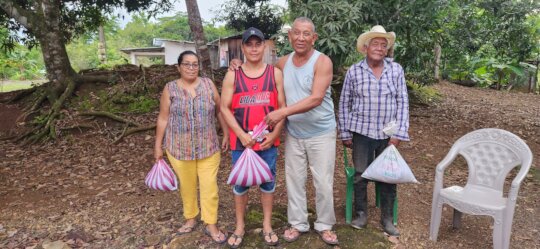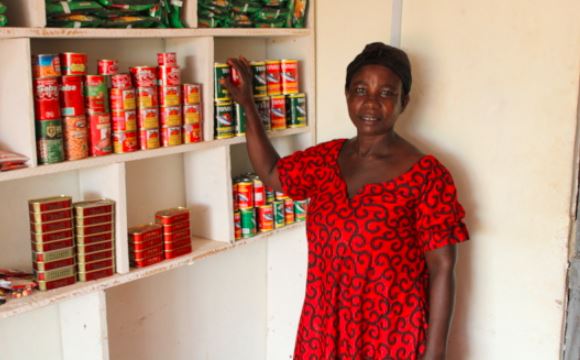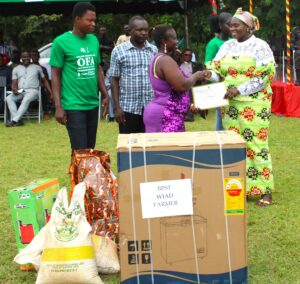Exclusive Breastfeeding: A Valuable Asset For Mother And Child
By Ernestina Esinam Glikpo, Communications Manager, Self-Help International

Rabiatu holding her eighth child, Bintu.
Rabiatu, a mother of eight in the Kukubuso community in the Atwima Mponua district in the Ashanti Region of Ghana, joined the Growing Healthy Food, Growing Healthy Children program (GHFGHC) in April 2021 when her seventh child was five months old. As part of this program she learned the importance of feeding babies only breast milk for the first six months. This was an eye-opener because Rabiatu had never practiced exclusive breastfeeding (EBF). Upon consistent training and advice from the SHI nutrition team when she got pregnant with her eighth child in 2022, she decided to try exclusive breastfeeding.
When her eighth baby was born she named her Bintu. From the day Bintu was born until she was six months old, Rabiatu fed her only breast milk. And guess what? Bintu grew well, maintaining steady positive growth on the growth chart. When she was born, she was 2.6 kilograms(5.7 lbs), but by the time she was 25 months old, she weighed 10.36 kilograms(22.84 lbs). This made Bintu one of the healthiest babies in the program.
After seeing the impact of exclusive breastfeeding, Rabiatu became one of the lactation coaches in the community. She testified that among her 8 children, Bintu, the last, who successfully underwent exclusive breastfeeding, is the strongest. “I hardly visited the hospital with Bintu for any illness compared to the others who were frequently admitted to the hospital.” She stated.
Rabiatu’s commitment to helping her family didn’t just stop there. She continued to attend all the training sessions the program offered and learned about other ways to keep her family healthy. In her determination to continue to improve her family’s nutrition, Rabiatu purchased 50 cockerels with her husband and started a poultry farm. As part of Self-Help GHFGHC program’s effort to improve protein intake among families, the cockerels were sold at subsidized rates to clients. Rabiatu and her husband were able to successfully use those cockerels and as of February 2024 recorded over 500 birds on their farm. This abundance of cockerels not only provides a sustainable source of protein now but also has provided an additional income source.
Today, Rabiatu and her family are healthier and happier. Your ongoing support is making an impact in the lives of many families like Rabiatu.




